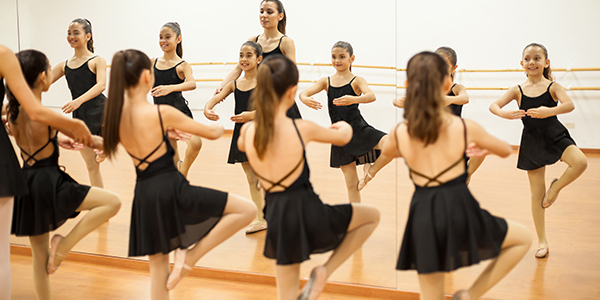
How to Communicate with Your Child
Parents communicate in many ways with their kids through conversation, tone of voice, body language and facial expressions. Sports can be an exciting topic to discuss with your young athletes. It’s important to be as supportive, empathic and positive as possible when you’re discussing sports with your children.
Kids’ experiences in sports can be positive. They may love learning new skills. But their experiences can also be negative. They may sometimes feel like failures, for example. To ensure your children feel positive about sports, follow these guidelines:
- Listen attentively. Nod your head, make eye contact and ask questions related to what your children have been saying. This shows you are interested.
- Avoid lecturing. Parents may overload their athletes with too much information or additional coaching. Let children voice their opinions.
- Avoid dwelling on mistakes. Mistakes are part of the game. Kids may be afraid of making mistakes in sports if parents dwell on them.
- Avoid criticism. Kids may start to tune parents out, feel defensive or not want to play sports anymore. Parents can offer lots of praise along with instruction.
- Keep your emotions in check. Sports is an arena where emotions can get out of hand. If you feel angry or disappointed, step away from the situation, take a deep breath and think about what you wan to say before speaking in the heat of the moment.
- Try to understand your children’s feelings. Kids want support from their parents. Parents can be supportive by validating their kids’ feelings.
Post-Game Tips For Communicating with your Kids
Kids may have a difficult time dealing with losses. They may feel disappointed, frustrated or even question their abilities. Parents want to approach their kids in a way that encourages communication.
- Read your children’s body language to determine if they’re open to talking to you. Sport losses are hard and some kids do not want to talk right away. Give them some space. If your kids want to talk to you about their experience, they will. Parents need to be patient, rather than forcing their kids to talk.
- Show empathy. Parents could say, “I know you tried really hard today and you must be upset.” Parents can also share a story about when they played sports and how they coped with losses.
- Talk about what your kids did well. Kids don’t want to hear about every single mistake they made during the game, especially if they lost. Talk to your kids about their effort, sportsmanship, or anything that can help build their confidence. Your kids cannot get enough praise. If you want to talk to them about ways to improve, wait a day.
- Be sure to share in your athletes’ excitement after games. Let your kids talk about the game and just listen. Be sure to praise them for what they did well.
Related Sports Psychology Articles
*Subscribe to The Ultimate Sports Parent Podcast
*Subscribe to Peak Performance Sports on Youtube
Download a free sports psychology report to improve your mental game!
Sports Psychology Coaching for Young Athletes

One-on-one mental performance coaching is the fastest and most effective method to improve your athletes’ mental game, boost their performance, and make lasting changes. And as a bonus, parents learn what to say to help young athletes feel confident and thrive in sports. Please call us at 888-742-7225 with your questions.
